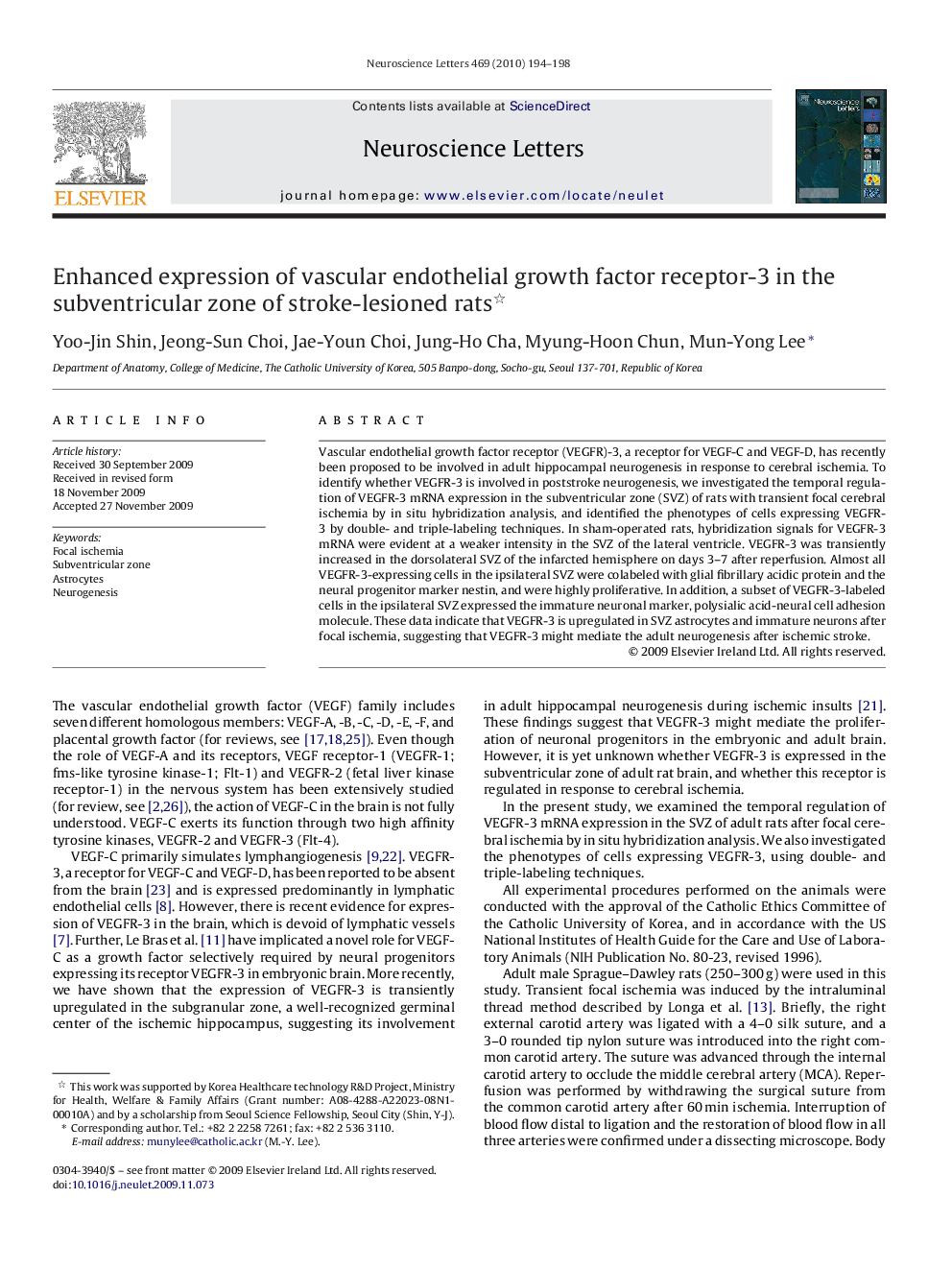| Article ID | Journal | Published Year | Pages | File Type |
|---|---|---|---|---|
| 4346642 | Neuroscience Letters | 2010 | 5 Pages |
Vascular endothelial growth factor receptor (VEGFR)-3, a receptor for VEGF-C and VEGF-D, has recently been proposed to be involved in adult hippocampal neurogenesis in response to cerebral ischemia. To identify whether VEGFR-3 is involved in poststroke neurogenesis, we investigated the temporal regulation of VEGFR-3 mRNA expression in the subventricular zone (SVZ) of rats with transient focal cerebral ischemia by in situ hybridization analysis, and identified the phenotypes of cells expressing VEGFR-3 by double- and triple-labeling techniques. In sham-operated rats, hybridization signals for VEGFR-3 mRNA were evident at a weaker intensity in the SVZ of the lateral ventricle. VEGFR-3 was transiently increased in the dorsolateral SVZ of the infarcted hemisphere on days 3–7 after reperfusion. Almost all VEGFR-3-expressing cells in the ipsilateral SVZ were colabeled with glial fibrillary acidic protein and the neural progenitor marker nestin, and were highly proliferative. In addition, a subset of VEGFR-3-labeled cells in the ipsilateral SVZ expressed the immature neuronal marker, polysialic acid-neural cell adhesion molecule. These data indicate that VEGFR-3 is upregulated in SVZ astrocytes and immature neurons after focal ischemia, suggesting that VEGFR-3 might mediate the adult neurogenesis after ischemic stroke.
